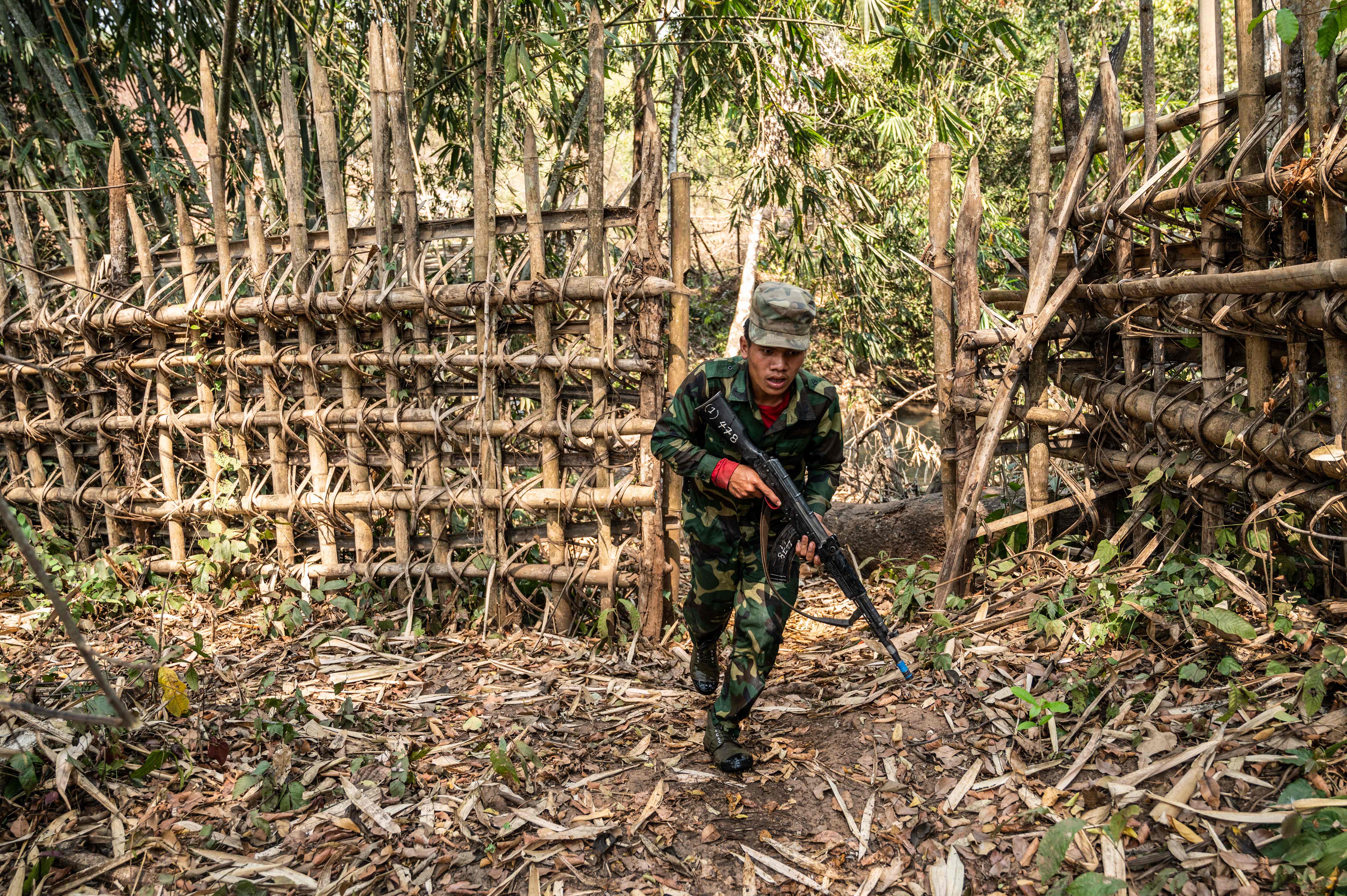UN says 50,000 civilians displaced in northern Myanmar
Ongoing offensive most serious challenge for military junta since they took control from elected government of Suu Kyi in 2021

Your support helps us to tell the story
From reproductive rights to climate change to Big Tech, The Independent is on the ground when the story is developing. Whether it's investigating the financials of Elon Musk's pro-Trump PAC or producing our latest documentary, 'The A Word', which shines a light on the American women fighting for reproductive rights, we know how important it is to parse out the facts from the messaging.
At such a critical moment in US history, we need reporters on the ground. Your donation allows us to keep sending journalists to speak to both sides of the story.
The Independent is trusted by Americans across the entire political spectrum. And unlike many other quality news outlets, we choose not to lock Americans out of our reporting and analysis with paywalls. We believe quality journalism should be available to everyone, paid for by those who can afford it.
Your support makes all the difference.Nearly 50,000 civilians have been displaced in the two weeks since an offensive against the military junta by ethnic armed groups intensified in northern Myanmar, the United Nations said on Friday.
“As of 9 November, almost 50,000 people in northern Shan were forced into displacement,” the United Nations Office for the Coordination of Humanitarian Affairs [OCHA] said on 10 November.
A further 40,000 people have been displaced by fighting between the junta and armed resistance groups in neighbouring Sagaing region and Kachin state since early November, the UN office said.
In its statement earlier this week, OCHA said: “Essential roads are obstructed by checkpoints operated by both sides, while phone and Internet services are disrupted. The main airport in Lashio, the area’s largest town, has been closed since the fighting escalated.”
The Three Brotherhood Alliance, one of Myanmar’s formidable ethnic armed coalitions, initiated a coordinated assault on multiple military outposts in the northern Shan state two weeks ago. This region is situated along Myanmar’s eastern border with China.
The alliance successfully seized control of the border town of Chin Shwe Haw during the operation.
A few days ago, the UN said that it was “alarmed” by the heavy fighting. “We are alarmed by the heavy fighting, particularly in Shan State in the northern part of the country, with reports of... airstrikes that led to civilian casualties and tens of thousands being newly displaced internally,” Stephane Dujarric, spokesperson for the UN secretary-general said.
The ongoing offensive represents the most serious challenge for the military generals since they took control from the elected government of Aung San Suu Kyi in February 2021.
Clashes between the Three Brotherhood Alliance – consisting of the Arakan Army, the Myanmar National Democratic Alliance Army, and the Ta’ang National Liberation Army – and the junta intensified in late October. Intense fighting was reported in various Shan state townships, including Kunlong, Hseni, Kyaukme, Kutkai, Lashio, Laukkaing, Muse, Namhkan, Chinshwehaw, and Nawnghkio. And also to some areas in northern Kachin state and the northern part of the Sagaing region.
Meanwhile, Myanmar’s state-sponsored media reported on Thursday that the head of the military government said that the fighting by the armed ethnic groups in the country’s northeast was funded in part by profits earned by one of the groups from the region’s lucrative drug trade.
The military admitted to losing control of three towns in the northern Shan state, which includes a significant border crossing point crucial for trade with China. However, the military has not provided an explanation for why the army failed to put up an effective defence and maintain control of these strategic locations.
“Today’s problem in Shan state (North) was triggered by narcotic drug problems,” the state-run Global New Light of Myanmar newspaper cited Min Aung Hlaing saying at a meeting on Wednesday of the state National Defense and Security Council.
“Earnings from narcotic drugs were spent on seizing power through the armed struggle. Such a plan was covered by drug production and trafficking,” he reportedly said.
The group, Myanmar National Democratic Alliance Army, denied his allegation.
“If the government does not effectively manage the incidents happening in the border region, the country will be split into various parts,” Myint Swe, president of the State Administration Council (SAC), told a national defence and security council meeting on Wednesday.
Additional reporting with agencies
Join our commenting forum
Join thought-provoking conversations, follow other Independent readers and see their replies
Comments